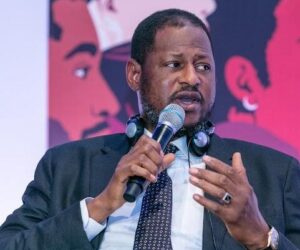The Executive Chairman of the Economic and Financial Crimes Commission (EFCC), Mr Ola Olukoyede, has raised a critical concern about the rising cases of crypto-enabled fraud. He warns that the line separating legitimate cryptocurrency users from fraudsters is dangerously thin.
This statement came during a high-profile meeting on Wednesday, September 3, 2025, when the agency hosted stakeholders in the Blockchain Technology Association of Nigeria (SIBAN), led by President Obinna Iwuno, at the EFCC’s corporate headquarters in Abuja.
The discussion centred on the urgent need for regulation in Nigeria’s growing crypto sector. Olukoyede’s remarks highlight a growing concern. The crypto boom is a double-edged sword. It offers innovation but has also served as a catalyst for fraud and other financial crimes.
The EFCC chairman spoke through his Chief of Staff, Commander Michael Nzekwe, who described cryptocurrency as “the new oil”. The profit potential is massive.

“Crypto is the new oil. There’s so much money in crypto. The ecosystem is something that needs to be properly regulated. If that regulation is not done, even the genuine actors will run into big problems.”
“The truth is that there’s a thin line between the genuine crypto operators and the fraudsters. What has been happening is that even politically exposed persons are now using it as a means for laundering money, and some of the actors in the ecosystem are falling for them. Even some of the ones you say are genuine are laundering money. So, it’s important that we have this particular meeting,” he added.
The EFCC has seen evidence of this. Recent raids uncovered syndicates. Over 792 suspects were arrested in Lagos. They were linked to cryptocurrency investment fraud and romance scams. The operation included 193 foreign nationals. This shows the global reach of the problem.
EFCC Chair calls for more crypto regulations
Without regulation, the chairman warns, the situation could worsen. Money laundering and terrorism financing are real threats. Nigeria’s large youth population adds urgency. They are active in the crypto space but vulnerable to scams.
The meeting featured key moments. SIBAN presented a draft code of ethics. This document aims to set standards for crypto practitioners in Nigeria. The exchange of these codes symbolised a step toward collaboration. It was a handshake between regulators and innovators.
SIBAN is not sitting idle. The association has pushed for regulation since 2018. Iwuno emphasised this commitment.
“We have a code of ethics which we have drafted using international best practices and standards from other jurisdictions across the world that have done regulation. It is a code of ethics for practitioners and operators in Nigeria. That is a show of our commitment and willingness to be ethical, to be regulated and also to be compliant with the laws of the land and the requirements of regulation across the world.”


“We have declared our openness and our needs and requirements for regulation. We have been on this since 2018, asking to regulate this sector so that we don’t lose out and become victims of capital flight,” Iwuno said.
The association also promotes education. Training programmes focus on investor safety. They emphasise Know Your Customer (KYC) protocols. Every digital asset platform must have at least two compliance officers. These steps aim to weed out bad actors.
Iwuno called for a partnership with the EFCC. “We want to blow the whistle on fraud,” he stated. This collaboration could enhance anti-scam campaigns. It might also leverage blockchain for EFCC operations.
This meeting marks a turning point, building on the government’s recent favourable look at the crypto ecosystem. It signals a united front against crypto fraud. Stakeholders are aligning, and the focus is on education, compliance, and enforcement.
The need for balance is clear. Regulation must protect without stifling innovation. Nigeria risks capital flight without it. The country’s youthful population is a raw asset that could drive real crypto adoption and ensure prosperity for all, with more government support and the right policies.








